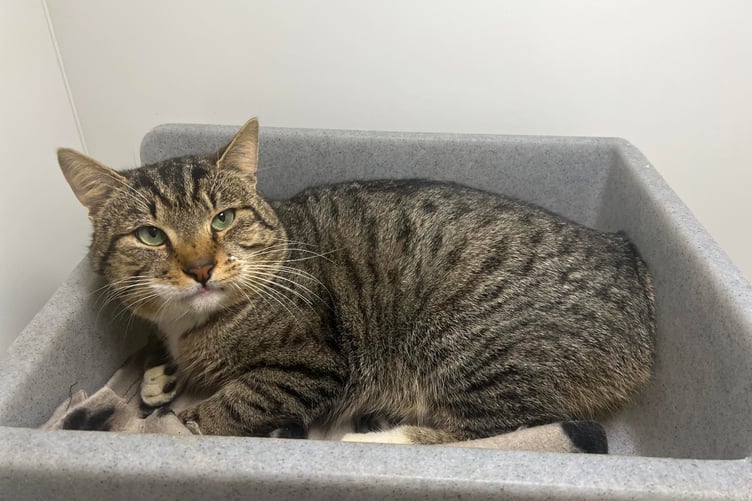In this week’s column from the Manx SPCA, we meet Hutch the cat who is looking for a new home and the Manx SPCA’s Juana Warburton gives us some top tips about getting cats to settle in to new surroundings...
Introducing a new cat to your home is a big deal, especially if you already have an existing cat or cats. Here is how you can introduce everyone for a smoother and more peaceful transition that minimises stress for both you and your cats:
* Prepare a cozy room: before the new cat arrives , set up a quiet room with everything the cat needs such as a comfortable bed (ideally with bedding that the cat has already been using so that it smells familiar), a litter tray, and food and water bowls. These should be placed well away from the litter tray. This room will be the new cat’s safe space.
* Resources – because cats can be territorial and possessive, make sure they have a food bowl and litter tray each, and enough places to sleep. This way, each cat will have their own space and will not feel the need to compete.
* Scent – cats learn a lot about each other through smell, and you can help them get used to each other by swapping their scents. Use a soft brush to gently stroke one cat along the side of their face where the scent glands are (just below the ear), and then use the same brush on the other cat. This mixes the scents and should help the cats feel more at ease with each other when they eventually meet, but stop if either cat appears anxious.
* Introductions – when your cats meet for the first time, be ready with treats and toys to distract the cats from any negative behaviour. Don’t leave them unattended until they appear comfortable around each other, and don’t force them to interact.
* Other pets – follow a similar, gradual introduction process, and make sure the new cat can always retreat back to their safe space.
Patience is key, and whilst some cats will eventually become good friends and sleep and play with each other, and enjoy mutual grooming, others will remain aloof and prefer their own company.
Hiding continuously, urinating in corners and over-grooming are signs that a cat is stressed, and if you observe these behaviours you should re-think the cat’s environment – do they have enough space to be independent of other cats; do they have somewhere to feel safe; and do you need to feed them away from other pets?
Here at the ManxSPCA cattery we’re just about to undertake some long-awaited building work – the old wooden cattery pens are going to be replaced with larger, state-of-the-art ones.
We’re using other areas of the Ard Jerkyll site to house cats temporarily, but this means we will have to restrict public viewing for the next few weeks.
However, we definitely don’t want to restrict cat adoptions, and during the building work we will be rehoming our felines as usual. Cats such as Hutch. He came to us recently after his owner sadly passed away, and so we don’t know much about him.
What we do know is that he’s young, probably two or three years old, he’s in good health, and he came from the Mount Murray estate.
His new home needs to be at least three miles away from that area so that Hutch doesn’t wander back to his previous house.
Hutch is a handsome Manx boy, and while he’s been in the cattery he has been quite shy but he does seem interested in the other cats. So, he could be rehomed with an existing feline, or felines, and he would benefit from a gentle introduction as described above.
If you have any cattery queries please call the team on 851672, option two, as usual. You may need to leave a message on an answer machine, but please be patient. The team will call you back.


.jpeg?width=209&height=140&crop=209:145,smart&quality=75)
.jpg?width=209&height=140&crop=209:145,smart&quality=75)

Comments
This article has no comments yet. Be the first to leave a comment.